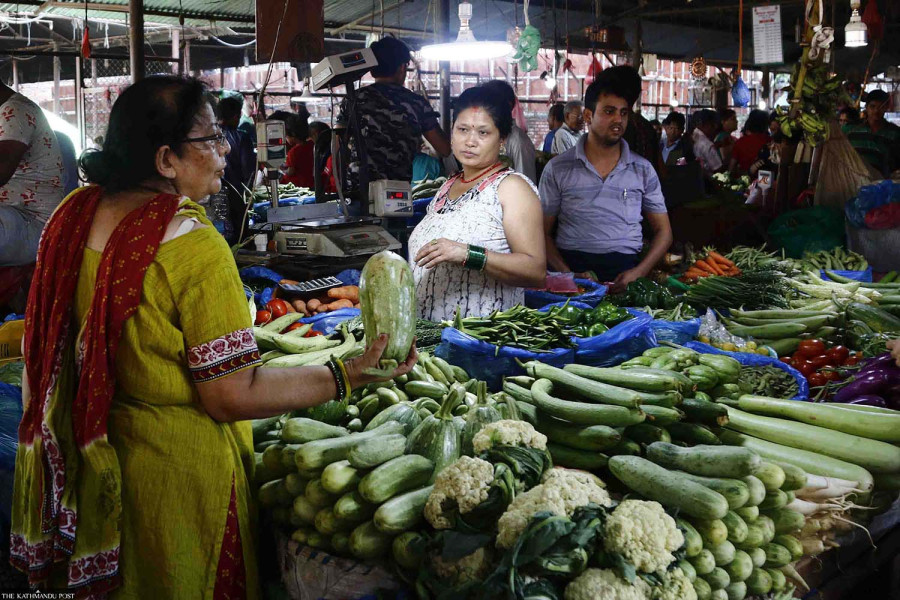Editorial
Kitchen sink realism
Households are now having to cut the number of daily curry servings as the price of vegetables has rocketed.
The country has been rocked by one after another high-level corruption case, the Lalita land scam and the fake Bhutanese refugees crisis being the most prominent of them. The federal parliament is being obstructed as the opposition parties want to safeguard the sovereignty of Nepal. Efforts are apparently underway to unseat the Dahal government and forge a new coalition of the Nepali Congress and the CPN-UML. But no one seems to be paying any attention to people’s bread-and-butter issues. Households are now having to cut the number of daily curry servings as the price of vegetables has rocketed. With the onset of monsoon, farmers have switched to planting paddy and there is an acute shortage of vegetables in the market. In the past two weeks, in the Kalimati wholesale market, the price of tomato (small) has galloped by 316.67 percent, reaching Rs40 a kg on Sunday. Eggplant (long) increased by 160 percent to Rs85 a kg, while eggplant (small) saw a 72.73 percent rise to Rs95 per kg. By the time consumers buy these things for their kitchen, they typically have to pay 50 percent more on wholesale price.
Things would not be so bad for average households if their incomes were in keeping with 7-8 percent annual inflation. Yet their earnings have been stagnant for years, ever since the start of the Covid-19 pandemic at the start of 2020. The less a family earns, the higher the percentage of income it spends on edibles. This again represents a typical case of the Nepali state not being able to prioritise the life of common citizens and not thinking long-term. For instance, the farmers have no incentive to grow vegetables as they don’t even get the minimum price. This is because in the absence of subsidies, all things grown in Nepal cost more than what they typically cost to grow across the border in India. Take the case of potatoes. Until a few years ago, the country was sufficient in vegetables. Now, just in the first 11 months of the current fiscal year, it had to import potatoes worth Rs7.4 billion.
Without the drip-drip of remittance, the country would have long since bled dry and inequality would have drastically increased. With the money Nepalis toiling abroad are sending home, countless low- and middle-income families can now afford decent living conditions. What is remarkable is that even though the amount the country receives in remittance has been increasing, most of that amount is immediately sent out in order to buy imported commodities. Nepal’s small and medium enterprises (SMEs), including those centred on agriculture, were walloped by Covid-19. The government has no solid policy to revive them even as the banks and financial institutions shun them. As a result of minimal domestic production, people are having to buy expensive imported stuff. This perhaps partly explains people’s mad rush to get out of the country, even if it entails having to take out expensive loans and disguise yourself as Bhutanese refugees. It is hard to call a state that cannot even adequately feed most of its people democratic. But of course our politicians have little time for such petty issues and are ever-busy protecting the country’s image.




 9.89°C Kathmandu
9.89°C Kathmandu














